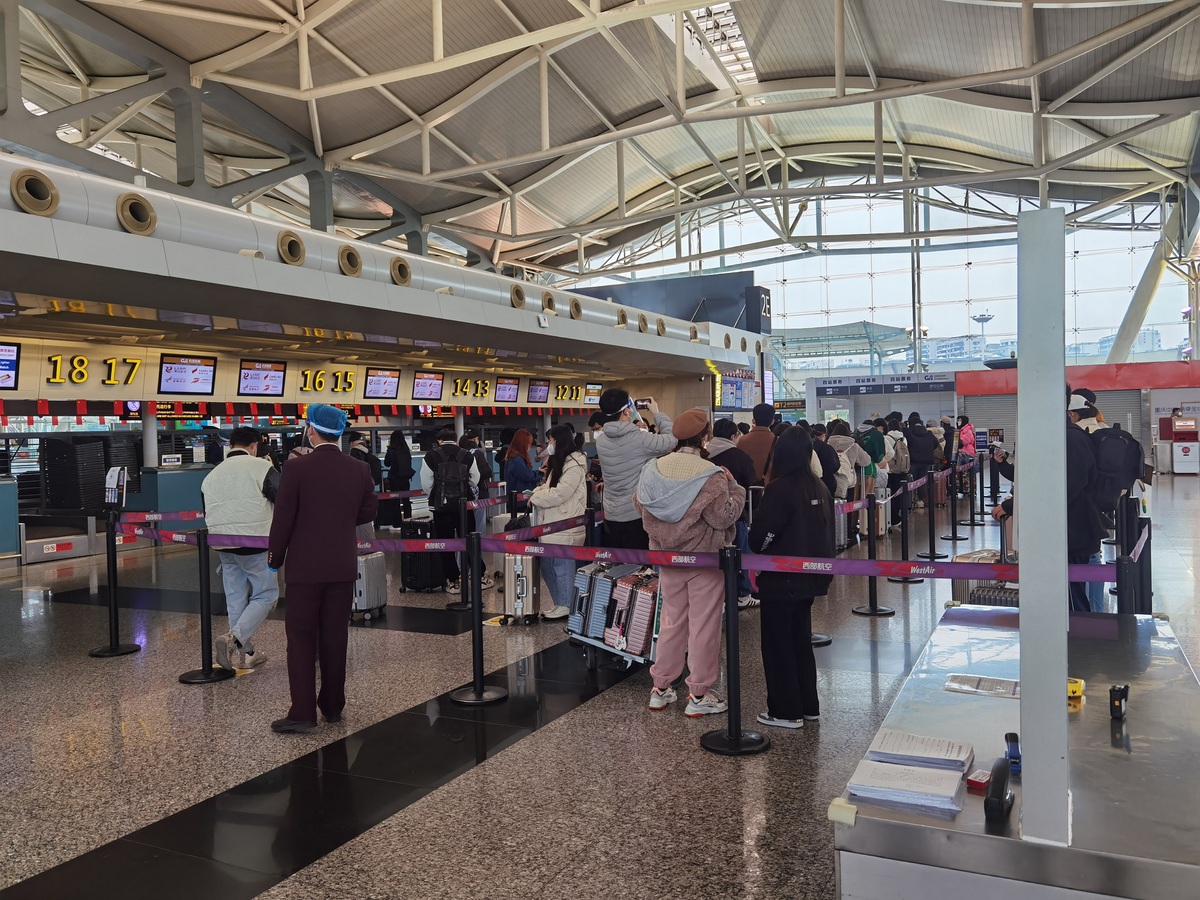Transport embraces COVID easing
By LUO WANGSHU in Beijing and TAN YINGZI in Chongqing | CHINA DAILY | Updated: 2022-12-10 07:21

People are freer to travel as China's transport sector has fine-tuned measures to further smooth transportation and logistics from Wednesday to respond to the nation's optimized COVID-19 containment measures.
Passengers traveling across regions and provinces are no longer required to present negative results of nucleic acid tests or health codes at public transport venues, according to an optimized guideline issued by the Ministry of Transport on Wednesday.
Travelers are also not required to take a nucleic acid test upon arrival, the guideline said.
Another notice has also been issued by the ministry on Thursday, stating that hindering the flow of people or products is forbidden, except in high-risk areas, to permit the smooth flow of people and goods.
According to the notice, checkpoints are to be removed to ensure smooth transportation and logistics. Service areas on freeways, ports, railway stations, airports or mail and parcel distribution centers may not be shut down without authorization.
Railway passengers are also no longer required to provide negative result of nucleic acid tests within 48 hours or health codes to travel, China State Railway Group, the national railway operator, said on Thursday.
The railway service provider also said more train services will resume to meet passengers' travel needs.
Thresholds have also been lowered for people to enter Beijing's two airports without negative results of nucleic acid tests or health codes. Temperature checks hitherto needed to enter the venues have also been canceled.
According to Beijing Daily, from Thursday, passengers no longer need to present negative results of nucleic acid tests or health codes to enter Beijing West or Beijing South railway stations. Travelers now going through security checks can scan their identity card to enter the stations, the same procedure used before the epidemic.
Some commuters from neighboring Tianjin and Hebei province took trains to the capital for work on Thursday morning.
A traveler from Tianjin to the capital told the newspaper that her Beijing health code returned to normal on Wednesday, which enabled her to buy a Tianjin-Beijing train ticket.
"There were fewer passengers onboard compared with the days before the epidemic but I believe their numbers will recover soon as more work and production have resumed already," she said.
According to China National Radio, nucleic acid test facilities have been removed at Beijing Fengtai railway station on Wednesday afternoon.
More relaxed protocols have also been adopted at transport venues across the country.
In Chongqing, passengers no longer need to present health codes or nucleic acid test results to enter the airport. The long-distance bus service at the airport has also resumed operations.
Railway services to Beijing from many places such as Zhengzhou of Henan province and Hohhot of Inner Mongolia autonomous region have also resumed.
Some train services have resumed in Urumqi, capital of Xinjiang Uygur autonomous region.
Meanwhile, Hohhot resumed flights to and from 31 cities. Airports in Shijiazhuang, Handan and Qinhuangdao of Hebei province canceled the requirements of providing negative results of nucleic acid tests or health codes.
Shi Baoyin, Zhang Yu, Mao Weihua and Yuan Hui contributed to this story.
























